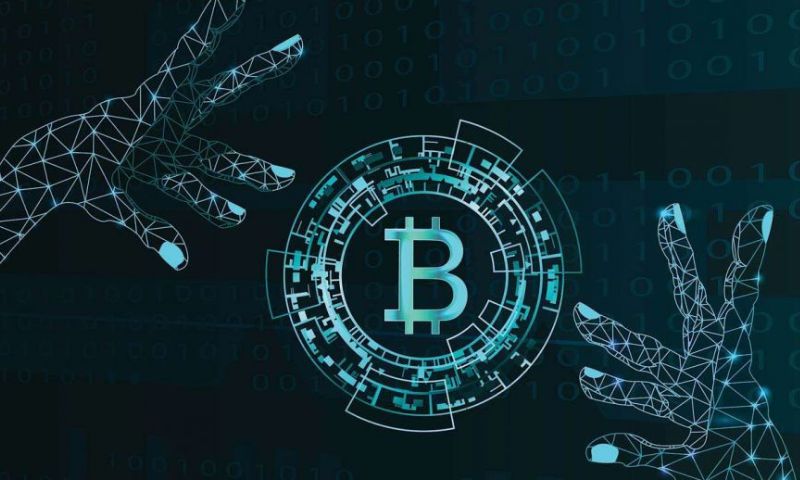Cryptocurrency Regulation Analysis: I dive deep, so you stay informed. With digital coins making waves, everyone’s eyes are on how countries map out laws for this tech gold rush. Some love it, some fear it, but all must deal with it. From the coin collector to Big Tech, I’m here unraveling the tangled web of global rules. Get ready for a ride on the wild side of finance, where I break down the big issues and what they mean for your digital wallet. Let’s make sense of this new financial frontier together.
Understanding the Global Cryptocurrency Regulatory Framework
The Varied Government Stances on Cryptocurrencies
Governments around the world think about cryptocurrencies in different ways. Some see them as the future of money. Others worry they could cause trouble. For example, the United States is careful but open to new digital currency ideas. They have rules to protect people who buy cryptocurrencies. On the other hand, China has said no to most crypto activities. They want to keep control over money in their country.
Each country makes its own rules for digital money. Some make strict laws. They want to stop bad things like money-laundering. Others are more relaxed to attract new cryptocurrency businesses. This mix of views can make things tricky for people who use or create cryptocurrencies. They have to be sure they follow the right rules in each place.
The Role of Financial Watchdogs in Crypto Regulation
Financial watchdogs help keep cryptocurrency markets safe. They watch over the market to make sure no one is breaking the rules. For example, in the United States, we have the Securities and Exchange Commission (SEC) and the Commodity Futures Trading Commission (CFTC). They make sure that crypto businesses are fair and open.
These watchdogs also create rules for how cryptocurrency businesses should act. They focus a lot on anti-money laundering (AML) rules and know your customer (KYC) policies. These help stop bad people from using digital money for illegal stuff. By checking who is buying and selling, watchdogs try to make sure that only good actors are in the market.
Watchdogs also check on crypto exchanges where people buy and sell digital money. These places need to be very secure to protect people’s money. By setting high standards, watchdogs help build trust in cryptocurrencies.
Global standards are also emerging. Groups like the Financial Action Task Force (FATF) guide countries on the best rules to make. They help make sure that, all over the world, people are safe when they deal with digital money.
Safety is key for these watchdogs. They work hard to keep everyone’s money safe. They also keep an eye on new tech in the crypto world. They want to understand how it all works to make better rules that protect investors.
As a crypto expert, I keep an eye on how these rules change. This helps people know what they can and can’t do in this new financial world. Stay informed, follow the rules, and watch the world of cryptocurrency grow in a way that’s safe for everyone.
Key Compliance Challenges in Crypto Markets
Anti-Money Laundering (AML) Measures in the Crypto Sphere
Criminals love to hide their tracks. In the crypto world, they try to use digital currencies to clean their dirty money. That’s where Anti-Money Laundering (AML) rules come in. They are tough laws to stop bad actors from misusing cryptocurrencies. The rules make sure everyone plays fair. They keep the bad money out of the system. But for people who run crypto businesses, these rules are tough to follow.
They have to check many things to make sure they’re not helping criminals. They have to know where the money comes from. They also must look out for sneaky transactions that might be hiding something illegal. This takes a lot of work. They have to use special software and keep an eagle eye on every deal. It costs money and time. But it’s super important to make sure everyone using crypto stays safe.
Know Your Customer (KYC) Protocols and Investor Protection
Now, let’s talk about Know Your Customer (KYC) stuff. This means crypto companies need to know who their customers are. Like, really know them. It’s not just about knowing a name or an email. They need IDs, they need to check faces, and they have to make sure the person is real and good.
This keeps everyone safe. It stops crooks from using fake names to do bad things with money. And it helps protect people who buy and sell cryptocurrencies. If everyone knows who everyone else is, it’s harder for the naughty folks to scam good people.
But for the companies, this is hard work. They need to check so many IDs and keep lots of records. It’s a big deal. And if they mess up, they could get in big trouble. Some could even lose their business for breaking these rules. So they have to be super careful and make sure they are doing everything right.
These rules – AML and KYC – help crypto stay clean. They make people trust it more. Without trust, no one would use crypto, and it wouldn’t work. We need these rules to keep crypto safe and fun for everyone. But they are tough for the businesses. They have a big job making sure they follow all the rules.
The Evolution of Cryptocurrency Legislation and Taxation
Tax Implications and Reporting for Crypto Transactions
When you trade or own cryptocurrency, you must think about taxes. This is like when you buy or sell things in a store. The government wants its share of the pie, so they set rules on how to report your crypto earnings. When you trade, sell, or spend your digital coins, you may have to pay taxes. Each country has its rules about this. In the United States, for example, the IRS treats cryptocurrency like property. So, if you make money from it, it’s taxed.
Each trade or sale of cryptocurrency can lead to taxes, like capital gains tax. Let’s say you bought some Bitcoin at one price and sold it later when the price went up. You must report the profit you made. The trick is keeping track of all your trades. It’s super important to know the details. You’ll need to note when you bought each coin, how much it cost, and the price when you sold it.
There are forms to fill out too. And yes, it can get complicated. It’s often a good idea to get a tax expert to help you. Especially if you do a lot of trading. These rules change too, so keep up to date to avoid trouble.
The Emergence of Central Bank Digital Currency (CBDC) Regulations
Now let’s talk about Central Bank Digital Currencies, or CBDCs. These are like digital dollars, euros, or yen.
A lot of countries are working on creating their own CBDCs right now. It’s their answer to the rise of cryptocurrencies. These digital currencies are backed by the countries’ central banks. That means they are less risky than other cryptos like Bitcoin. They aren’t up and down all the time. Countries want to make sure these CBDCs are safe and work well. So, they create special rules for them.
These rules cover everything from how you get and use CBDCs to how they’re kept safe from bad guys online. Everyone from banks to regular folks will follow these rules if they use these digital currencies. The point of CBDCs is partly to make money things easier and faster. Think paying for your coffee or sending money to your friend in another country. But this means the government sees all the transactions. This can be good for stopping crime but might worry some people about privacy.
As these CBDCs become more common, we can expect even more rules to come out. Countries will learn from each other and improve their regulations. We are all part of an experiment, seeing how money changes in the digital world!
In short, whether we’re looking at taxes for cryptocurrencies or rules for CBDCs, we see governments trying their best to adapt. The key takeaway? Always stay informed. And when in doubt, it’s alright to ask for help from a pro who knows the ropes. This way, you can enjoy crypto fun and take care of business correctly.
Future Directions and Legal Considerations for Digital Assets
Regulatory Landscape for Decentralised Finance (DeFi)
DeFi changes how we use money online. It lets us lend, trade, and earn interest without banks. But the rules are tricky. We need to know the law to keep DeFi safe and fair.
What rules cover DeFi? DeFi falls under crypto trading guidelines and often needs to follow anti-money laundering rules.
Rules for DeFi are still fresh. Some places have strict laws, while others are learning. These rules aim to protect users and keep markets clean. We see governments and bodies working out global crypto regulatory standards. This means that DeFi might have clearer rules soon.
DeFi lets people trade and earn without a middle man. This is big for finance. But it’s hard to make laws that fit just right. Laws need to be tight for safety but loose so DeFi can grow. Right now, each country is trying out their own rules. Some, like the US, are strict with DeFi. They use the same rules as other finance. Others are still deciding the best move.
For anyone in DeFi, knowing your customer (KYC) rules is key. These rules help to stop money crime. If you’re running a DeFi project, you need to think about these. It can be tough, but it’s a must to keep DeFi trusty.
As for folks using DeFi, it’s smart to check the laws in your area. DeFi is fun and useful. But stepping on the wrong side of the law is no joke. Be sure to keep track of new rules so you can enjoy DeFi with no worries.
Navigating the Complexities of Non-Fungible Tokens (NFTs) Regulations
NFTs are unique digital items you can collect and own. But owning NFTs can be complex. We’re talking about art, games, and more online. So, the rules are still catching up.
What laws apply to NFTs? If you make, buy, or sell NFTs, you follow digital currency legislation rules. The rules are like those for other art and online goods.
Making art into NFTs is a new thing. But even though they’re digital, they’re still assets. Like physical art, you need to check the tax rules for selling NFTs.
Buying NFTs? Be careful. You want to be sure you’re not buying stolen art. This is where crypto asset risk assessment comes in. It helps you check if an NFT is legit.
Selling NFTs is like selling other things online. Be honest about what you sell. And remember, if you make money, you might owe tax on it. Each country has different tax rules. It’s important to know them.
Right now, each country is figuring out how to deal with NFTs. Some see them as art, others as digital assets. It’s a mix! As people who like NFTs, we should stay updated on these rules.
The rules for NFTs are still being written every day. Think of it as a new game where we’re all learning the moves. By staying smart and aware, we can play this game right and keep the fun in NFTs.
In both DeFi and NFTs, what’s clear is that rules are key for safety and growth. By learning the law, we all help this new world shine.
In this post, we explored how the world is tackling crypto rules. We saw how varied government views shape these rules. Financial watchdogs also play a huge role in keeping crypto in check.
We then looked at big hurdles in following these rules, like stopping illegal money flow and making sure firms know their clients well to protect investors.
Next, we talked about how crypto laws and taxes are changing. There’s a lot to think about when you report your crypto earnings. Also, countries are thinking hard about rules for their own digital money.
Last, we saw what might come next for digital assets. DeFi and NFTs are new and exciting, but they raise tricky legal issues.
Clear rules help us all. They keep the crypto market safe and fair. We’re heading into a future where digital money will be part of everyday life, so getting these rules right is key. I hope this post has given you a good look at the complex but vital world of crypto regulation. Stay informed and always think ahead!
Q&A :
What are the latest developments in cryptocurrency regulation?
The landscape of cryptocurrency regulation is constantly evolving, with governments around the world working to develop frameworks that balance the innovation of digital currencies with the need for consumer protection and financial stability. 2021-2023 has seen significant movement, especially in areas related to anti-money laundering (AML) requirements, taxation, and the classification of cryptocurrencies as securities or commodities. Staying updated on the latest policy changes and proposals in major economies like the United States, the European Union, and Asia is crucial for investors, developers, and users in the crypto space.
How do cryptocurrency regulations impact global trade?
Cryptocurrency regulations significantly impact global trade by influencing how these digital assets are used for cross-border transactions. Stricter regulatory environments may hinder the growth of cryptocurrency use in international trade by imposing heavy compliance requirements or outright banning their use. Conversely, clearer and more favorable regulatory guidelines can promote the adoption of cryptocurrencies as a medium of exchange, potentially reducing transaction costs and increasing efficiency. Analysis of these regulations helps businesses and investors navigate the complexities of using cryptocurrencies in a global context.
What can we expect from cryptocurrency regulation in the next 5 years?
Forecasting the next five years in cryptocurrency regulation requires close observation of current trends and regulatory proposals. It is likely that we will see increased efforts towards harmonization of regulations at both international and national levels. Governments may focus on consumer protection, tax evasion, and preventing financial crimes, leading to more robust reporting and monitoring systems. A potential rise in the use of Central Bank Digital Currencies (CBDCs) could also drive new regulations. However, the pace and specifics of these changes will depend on various factors including technological advancements, shifts in political attitudes towards digital assets, and the outcomes of ongoing regulatory experiments.
Are there any global standards for cryptocurrency regulation?
While there is currently no single set of global standards for cryptocurrency regulation, various international organizations such as the Financial Action Task Force (FATF) and the International Monetary Fund (IMF) have provided guidelines and recommendations to shape nations’ approaches to regulating the crypto sector. The FATF updated its recommendations on virtual assets and providers in 2019, setting a global standard for combating money laundering and terrorist financing risks. Collaboration among countries is growing, and over time, this may result in a more cohesive international regulatory framework for cryptocurrencies.
How do differences in regional cryptocurrency regulations affect investors?
Differences in cryptocurrency regulations across regions can create a complex landscape for investors, potentially affecting their investment strategies and risk assessments. In regions with strict or uncertain regulations, investors might face higher compliance costs, limited access to a full range of crypto services, or abrupt changes in the legal status of their investments. Conversely, regions with a more open and clear regulatory stance could provide a more favorable environment for cryptocurrency operations. Therefore, investors must perform thorough research and possibly consult with legal experts to navigate the variances in regional regulations effectively.






